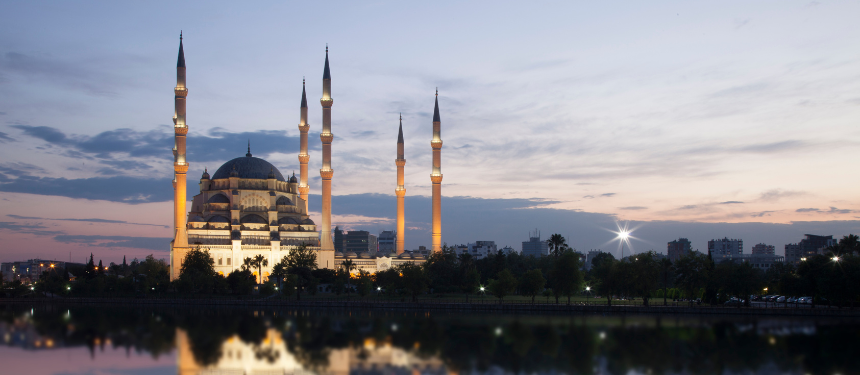Business considerations during Ramadan 2024

What is Ramadan?
The Islamic holy month of Ramadan 2024 is expected to begin on the evening of 10th March and end on the evening of 9th April. In this month, Muslims observe daily fasting by abstaining from drinking, eating, sex and behaviours considered immoral from dawn until sunset. Ramadan is immediately followed by Eid al Fitr (‘Holiday of Fast-Breaking’) during which Muslims get together with extended family over meals.
Ramadan is a month of fasting and a period of introspection, communal prayers at the mosque and increased charity. Muslims break their daily fasts with a meal called Iftar, often shared with friends and extended family. Pre-dawn meals, called Suhoor, are observed before Muslims begin fasting for the day. Muslims generally pray five times a day at different hours, and in Ramadan, additional congregational prayers, called Taraweeh, are offered nightly at mosques. Muslims make substantial adjustments to their lifestyles in Ramadan, and changes to business hours and public etiquette are expected, particularly in Muslim-majority countries.
Business considerations during Ramadan 2024
In countries with significant Muslim populations, working hours are generally reduced. Reduced working hours apply to individuals regardless of whether they are fasting. Slight delays in public services such as public transport are expected, and employees are advised to plan accordingly to prevent prolonged disruption. Any work tasks that require a visit to government offices should be conducted as early in the morning as possible, as public sector employees tend to end work early. Muslims living in predominantly non-Muslim countries, such as those in the West, are generally afforded accommodations, such as work timings, to ensure they can work while fasting.
Eating, drinking and smoking are not allowed in public places during the day, and non-fasting employees are expected to consume food in private spaces as a sign of respect. Muslims observe the five daily prayers at Fajr (dawn), Dhuhr (after midday), Asr (afternoon), Maghrib (sunset) and Isha (night-time), and employees are recommended not to schedule meetings during prayer times that coincide with working hours. Scheduling late afternoon meetings near Iftar time is also not ideal, as fasting employees appreciate having time to rest between work and the conclusion of the fast. Prayer times differ between countries, and even between cities within countries, but an online search can reveal the timings. Personnel are advised to dress modestly within the workplace and in public; individuals may be turned away if found to be dressed inappropriately. Be aware of dress codes before visiting public institutions, particularly government offices, and before heading to Ramadan events.
Safety and security risks associated with Ramadan
- Travellers should refrain from photographing worshippers during prayers and understand that locals in observant communities may be fatigued due to the long hours of fasting. As such, individuals are advised to be patient in interactions.
- While foreign travellers are usually afforded some flexibility with conservative dressing, there have been reports of attacks on foreigners in Muslim-majority countries due to perceived disrespect. Travellers are advised to dress modestly in workplaces and in public. For female travellers, individuals should ensure their shoulders and legs are covered and favour loose-fitting clothing; females may also be asked to cover their hair with a headscarf in some locations, particularly at religious sites.
- Demonstrative acts of affection in public, including hugging the opposite sex, can constitute an offence, as well as eating and drinking in public. In some countries, chewing gum is illegal during the holy month. Travellers are advised to remain aware of local norms.
- Wherever possible, travellers should seek to book transport through trusted local providers (hotels will often provide details). It is strongly advised that travel is avoided in the hours preceding and immediately following Iftar. Travellers should keep adequate supplies of non-perishable food and water in their accommodations to avoid unnecessary travel during rush hours.
When travelling to Muslim-majority countries, keep in mind that local laws and customs related to business etiquette and behaviour may differ by region and country. Healix clients can download the Travel Oracle app and utilise the ‘Watch Country’ function to receive notifications on the latest security incidents in-country.


